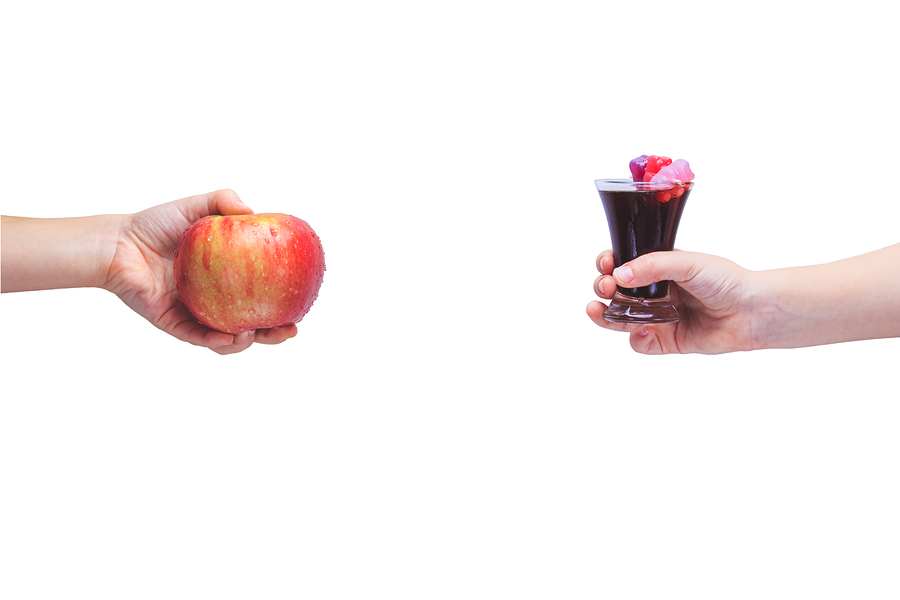Let’s face it, the Standard American Diet (S.A.D.) is terrible. We’re led to believe that unhealthy foods are healthy simply because of the overuse of trendy “diet fads” and clever marketing.
I want to help make things simple for you, my friend. One of our talented writers recently wrote a post, which inspired this week’s Saturday Strategy. I want to show you 30 simple swaps to help you upgrade your plate and ultimately, upgrade your health!
You may already know some of these, while others may be new. I encourage you to give them a try and find the ones you like best. Get your friends and family involved and pick a day of the week to try a new recipe using a new “healthy swap” from this list. Then comment below and let me know which one you tried and how it turned out!
It’s hard for me to pick a favorite from this list because they are all so good!
1. Pasta < Spaghetti Squash
Eating spaghetti squash will help fill up your plate without adding a ton of calories. Each cup of the cooked squash contains only 42 calories – 2 percent of the daily calorie intake on a 1,500-calorie diet, or 1.5 percent of a 2,000-calorie diet. Due to the squash’s low calorie content, substituting spaghetti squash in place of spaghetti pasta dramatically reduces the calorie content of your meal; substituting a cup of squash in place of pasta saves you 179 calories. If you normally eat spaghetti once a week, the calorie difference in switching to spaghetti squash translates to 2.5 pounds of weight loss over the course of a year.
RELATED ARTICLE:
One cup of squash contains vitamin A, several B vitamins, as well as vitamins C, E and K. In addition, spaghetti squash provides a source of the essential minerals calcium, zinc, copper, manganese, and selenium.
2. Skim Milk < Almond, Hemp or Coconut Milk
Skim milk is fortified with synthetic vitamins to replace those lost in fat-removal and milk solids to replace the protein and calcium lost in processing. Just one cup of skim milk contains 90 calories and 12 grams of sugar.
Opt for unsweetened almond, coconut or hemp milk. The calories will be cut in half and without any sugar. They also won’t contain the nasty additives found in dairy milk.
3. Soy Sauce < Coconut Aminos
There is a lot of misinformation out there about the health of soy. One thing’s for sure though, unfermented soy has been shown to be a hormone disrupter, particularly an estrogen mimicker. It’s recommended that people with autoimmune disease or any sort of endocrine system imbalance (thyroid, hormones, adrenal glands) avoid soy because of its thought-to-be negative affects on the body.
Instead, opt for coconut aminos, which are just a tad sweeter than soy sauce, without the soy or wheat that soy sauce contains.
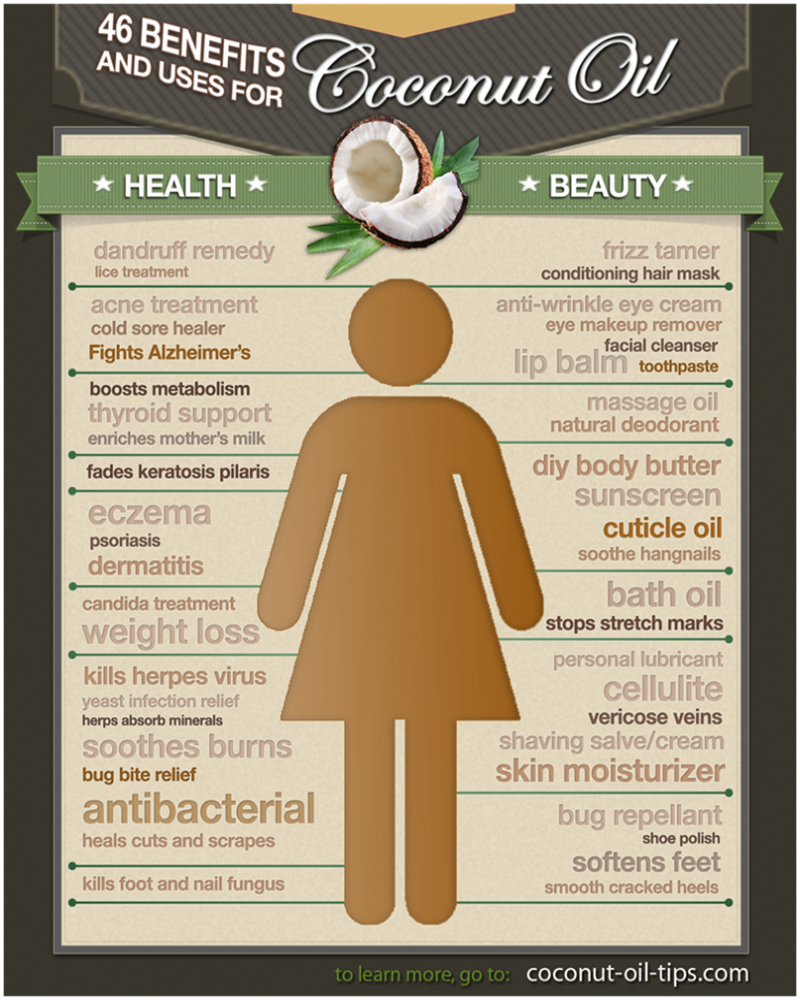 The most notable benefit of coconut aminos is its impressive amino acid content compared to soy-based sauces. Commonly described as the “building blocks of protein,” amino acids are vitally important to human health. They contribute to the repair and rebuilding of muscle tissue, help to enhance overall brain and nervous system function and assist in boosting the immune system and physical energy levels. Second only to water, protein is one of the most important substances in our bodies, which is why it is nutritionally beneficial to consume a diet that is rich in amino acids.
The most notable benefit of coconut aminos is its impressive amino acid content compared to soy-based sauces. Commonly described as the “building blocks of protein,” amino acids are vitally important to human health. They contribute to the repair and rebuilding of muscle tissue, help to enhance overall brain and nervous system function and assist in boosting the immune system and physical energy levels. Second only to water, protein is one of the most important substances in our bodies, which is why it is nutritionally beneficial to consume a diet that is rich in amino acids.
4. Agave Nectar (refined sugar) < Raw Honey
Though most health food stores carry it, the trendy sugar substitute, agave nectar, shockingly contains 70 to 80 percent fructose, which is more than what’s found in high-fructose corn syrup. Most agave is laboratory-generated super-condensed fructose syrup, without any nutrients.
 Raw honey has anti-viral, antibacterial, and antifungal properties. It promotes body and digestive health, is a powerful antioxidant, strengthens the immune system, eliminates allergies and is an excellent remedy for skin wounds and all types of infections.
Raw honey has anti-viral, antibacterial, and antifungal properties. It promotes body and digestive health, is a powerful antioxidant, strengthens the immune system, eliminates allergies and is an excellent remedy for skin wounds and all types of infections.
5. Gatorade (or any energy or sports drinks) < Coconut Water
It’s better than a sports drink. Dubbed “nature’s Gatorade”, coconut water is a natural isotonic drink that provides many of the same benefits as formulated sports drinks, including the electrolytes calcium, magnesium, phosphorus, sodium and potassium, but in their natural form.
6. Sugar-Laden Latte > Organic Black Coffee with Butter or Coconut Oil
While the “foofy” espresso drinks are delicious, they pack a ton of empty calories, including massive amounts of sugar. Coffee is also a large GMO crop, so to avoid those nasty pesticides and chemicals, opt for organic beans.
RELATED ARTICLES:
- ADD 2 TBSP. OF THIS COCONUT OIL MIXTURE TO YOUR MORNING COFFEE TO BURN CALORIES
- Cinnamon Spiced Coffee with Coconut Milk- Long-Lasting Energy Without the Crash!
Instead, of your daily grande, low-fat, vanilla latte with a dash of cinnamon, opt for organic black coffee with butter or coconut oil. You can even add some vanilla stevia for an extra dose of flavor.
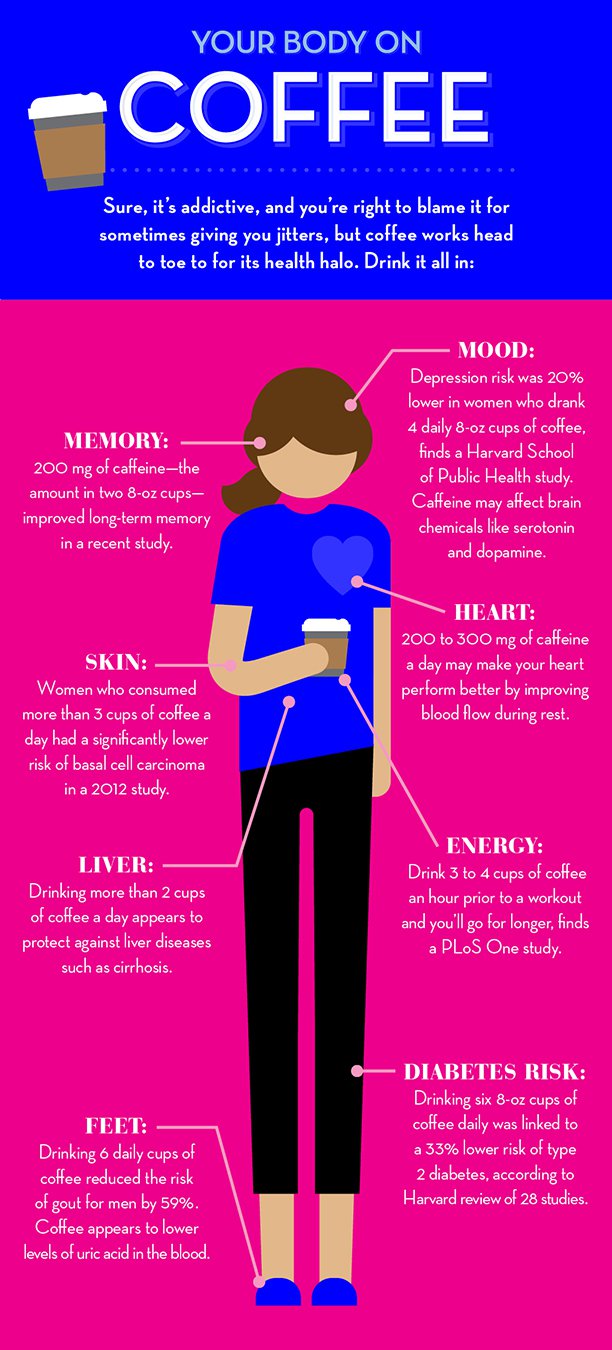
Coffee often gets a bad rap when in fact, quality coffee consumed in moderation can have some great benefits.
It’s high in antioxidants. A study published in the journal “Plant Foods for Human Nutrition” found the antioxidants in coffee decrease oxidative stress in the body and therefore reduce risk of diseases like cancer and reduce inflammation in the body. Another study, published in the “Journal of Nutrition and Metabolism,” found coffee may help to prevent and treat diabetes by lowering blood sugar levels after meals.
Adding good quality fats helps eliminate sharp spikes in dips in energy, promotes healthy cognitive function and helps stabilize pH levels.
7. Margarine < Butter or Ghee
Margarine is nothing more than chemicals, sugar, and dairy and is created in a lab. There is nothing natural about margarine. It’s made from trans fat, which is known as the artery-clogging fat. It also increases LDL levels (the bad cholesterol) and lowers HDL (the good cholesterol).
Butter or ghee (which is clarified butter), on the other hand, packs some great nutritional value!
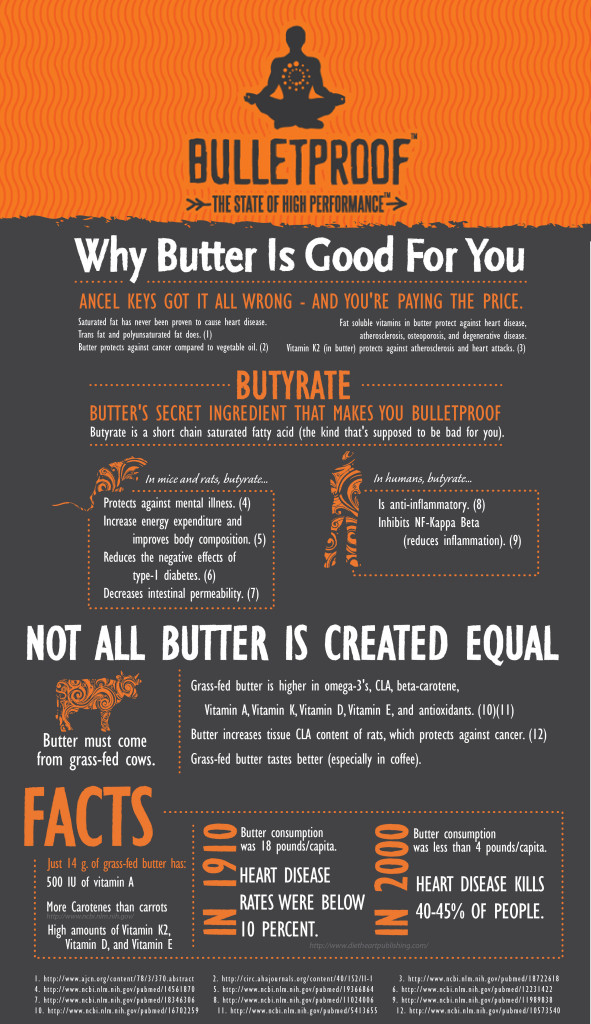 Thank you BulletProofexec.com for the great graphic
Thank you BulletProofexec.com for the great graphic
Butter is a great source of vitamins A, D, E and K. Trace minerals are found in butter such as manganese, chromium, zinc, copper and selenium, which is a powerful antioxidant. Butter contains more selenium per gram compared to herring or wheat germ. What’s more, butter is also a great source of iodine.
The fat in butter is great for your immune system and boosting metabolism. (Fat doesn’t make you fat, sugar makes you fat!) It’s also great for skin health and cognition.
Butter contains Wulzen Factor – This is a hormone-like substance with many functions. It can prevent stiffness in the joints, as well as arthritis. It is also responsible for ensuring that calcium is deposited in the bones rather than in the joints. Note that the Wulzen factor can only be found in raw butter and cream.
Ghee is just butter with the milk solids removed, making it a great option for those unable to handle standard dairy.
Always opt for organic to avoid hormones!
8. Sugar < Cinnamon
Sugar cause inflammation and inflammation causes disease. It’s really that simple.
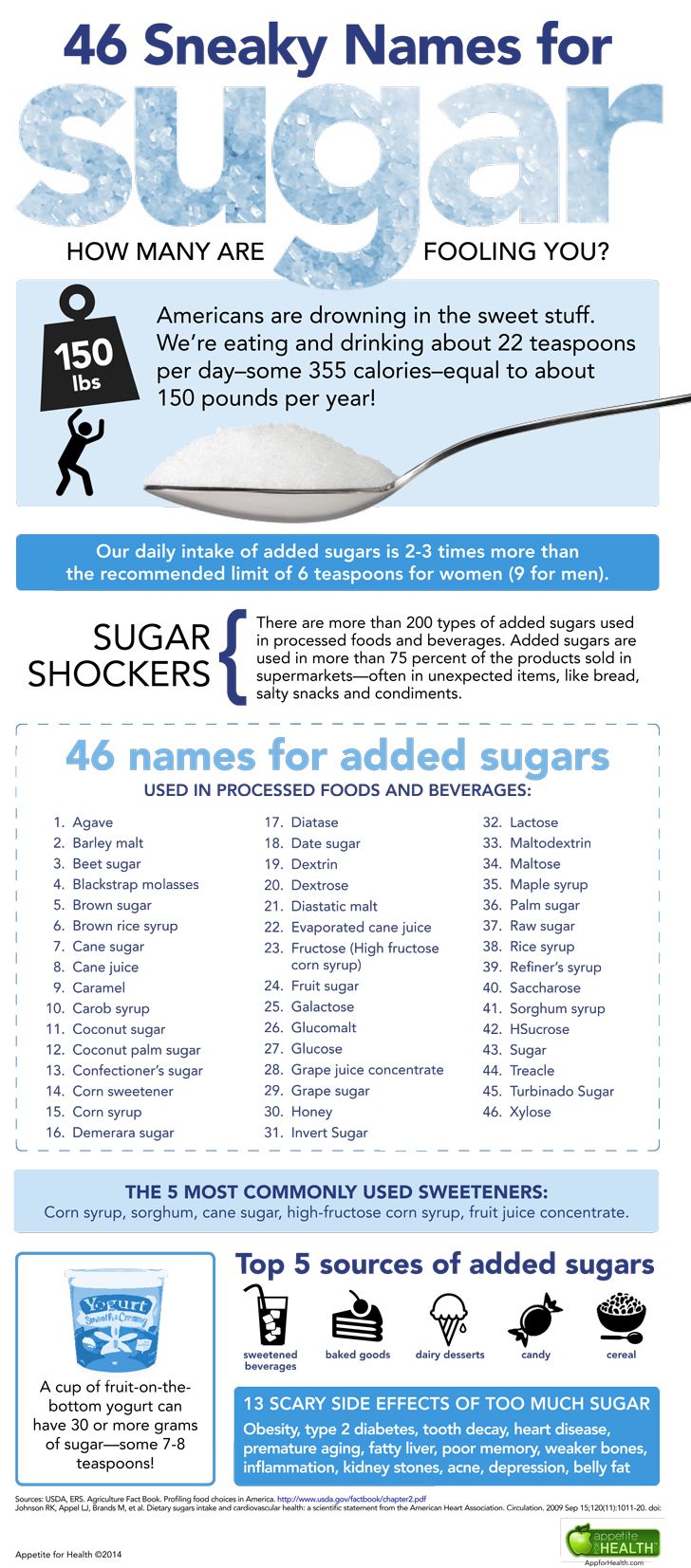 Cinnamon, however, is full of amazing benefits, plus it’s so good! Ceylon cinnamon is the “true” cinnamon and the one you want to look for when shopping at the market.
Cinnamon, however, is full of amazing benefits, plus it’s so good! Ceylon cinnamon is the “true” cinnamon and the one you want to look for when shopping at the market.
It is high in a substance called cinnamaldehyde, which is responsible for it’s positive effects on health and metabolism. Cinnamon contains large amounts of highly potent polyphenol antioxidants. In a study that compared the antioxidant activity of 26 spices, cinnamon wound up as the clear winner, even outranking “superfoods” like garlic and oregano. It contains anti-inflammatory properties, which may help to lower the risk of illness and disease. Cinnamon has been shown to significantly increase sensitivity to the hormone insulin. Cinnamon has been shown to both reduce fasting blood sugar levels, having a potent anti-diabetic effect at 1 to 6 grams per day (or roughly about 1/4 teaspoon to 1 and 1/4 teaspoons).
The smell of cinnamon increases cognitive function by 15%!
 9. Bread < Collard Wrap
9. Bread < Collard Wrap
Bread is full of sugar and carbs, which don’t help if you’re trying to lose weight. Aside from that, it’s often cut with a ton of unnecessary ingredients for shelf life and naturally contains gluten (responsible for the chewiness in bread. The majority of the population has some sort of intolerance to wheat/gluten simply because of the way it’s been over-processed. These factors often lead to digestive and skin issues, not to mention brain fog and potentially chronic illness and disease.
Collards are a great upgrade and are not only really tasty, but they’re loaded with nutrients. They are part of the cruciferous family and are said to have cholesterol lowering ability. They are chock-full of vitamins and minerals, including vitamin A, K, C, manganese, fiber, calcium and B vitamins.
 10. Sour Cream < Greek Yogurt
10. Sour Cream < Greek Yogurt
Baked potatoes, creamy dips, tacos… sour cream is great! But you know what’s better for you? Greek yogurt!
Greek yogurt contains beneficial bacteria, good for gut and immune health. Of course, if you are someone who cannot tolerate dairy, stay away from yogurt and instead, try organic kefir. While this is technically still dairy, a number of beneficial bacteria have been shown to actually help reverse lactose intolerance, making it easier to assimilate and digest quality dairy products. Always buy organic.
11. Store Bought Salad Dressings < Olive Oil & Apple Cider Vinegar
These contain so many ingredients, like filler and added sugar. Instead, drizzle some olive oil and ACV instead, maybe a sprinkle of celtic sea salt and you’ve got a great – and easy – dressing!

12. Iceberg Lettuce < Spinach, Chard, Kale, Romaine
The best thing about iceberg lettuce is its water content. Aside from that, there is not a whole lot of value to this barely green veggie (sorry, Iceberg). Choosing greens that are dark and vibrant pack a much more nutrient-dense punch, providing your body with tons of vitamins and minerals to fuel you towards optimal health.
13. Cheese < Nutritional Yeast
Though many people can tolerate dairy, we must emphasize again that dairy creates inflammation in the body and is also mucus-forming.“ Try sprinkling nutritional yeast on items you’d typically sprinkle cheese on. Sure, it won’t give you the ooey-gooey texture of cheese, but it provides a very similar flavor and nutritional yeast contains B12 which, in addition to it being a “complete protein,” means it contains all the amino acids we must get from our food. It’s also low in fat and sodium, is free of sugar and gluten and contains iron.
 Thank you Healthyeaton.com for the great graphic
Thank you Healthyeaton.com for the great graphic
14. Soda < Anti-Anxiety Drink
This soda – or “pop” – alternative is not only REALLY good, but it helps reduce anxiety, relaxes the body, aids in regular digestion and provides mineral support that your body craves.
Give it a try and let me know what you think!
15. Banana < Avocado
Bananas are great and provide a creamy texture in smoothies. But for those looking for a lower glycemic option, avocado provides the same creaminess and are a great source of vitamins K, C, B, E, folate, potassium (more than bananas!) and healthy fats, so great for metabolism, brain, heart, and skin health as well as immunity.
1 avocado = 3 bowls oatmeal, fiber-wise!
 16. Granola < Steel Cut Oatmeal
16. Granola < Steel Cut Oatmeal
Granola is often full of added sugars, which increase inflammation and cause a slew of other health issues. Steel cut oats are rich in dietary fiber and are low glycemic, making them a great choice for diabetics as they help keep blood glucose levels stable. The soluble fiber in oats may also affect blood pressure levels. They also keep you full longer, decreasing the chance of overeating.
17. Egg McMuffin < Veggie Scramble
Ditch the carb-loaded muffin and cheese and load your super-nutritious eggs with veggies, which boost your overall health from a cellular level.
Eggs are a great source of vitamin A and B, folate, selenium and protein. Be sure to eat the WHOLE egg, as most of the nutrients are in the yolk, while the protein is in the white. Both parts are important, my friend!
Contrary to popular belief, while eggs are high in cholesterol, they do not adversely affect blood cholesterol. Cholesterol in the diet doesn’t raise cholesterol in the blood.
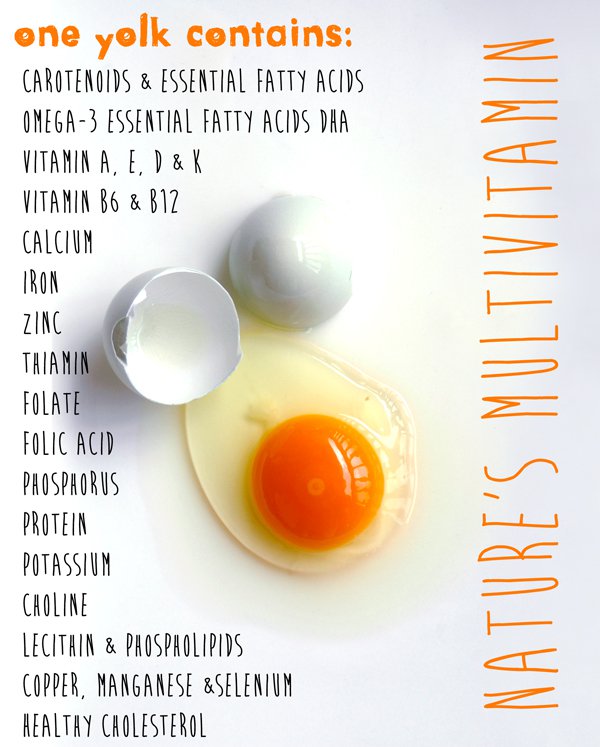 They’re also a great source of choline, an incredibly important nutrient that most people don’t get enough of, which is used to build cell membranes and plays a role in producing the signaling of molecules to the brain and other bodily functions.
They’re also a great source of choline, an incredibly important nutrient that most people don’t get enough of, which is used to build cell membranes and plays a role in producing the signaling of molecules to the brain and other bodily functions. 18. Alfredo Sauce < Vegan Pesto
18. Alfredo Sauce < Vegan Pesto
Cream based sauces pack a ton of calories, sodium and the obvious, dairy (typically from conventional cows). Pesto is a great upgrade, using nutritional yeast in place of cheese – don’t worry if you’ve never heard of this. Once you use it, you’ll be hooked, just like me.
A friend of mine made this for me the other night on top of salmon and it was delicious! She said it was super easy too and I believe her. I can’t wait to make it myself!
Vegan Pesto
Ingredients
- 2 cups lightly packed fresh basil
- ½ cup raw, unsalted pine nuts
- 2 large cloves garlic
- ½ cup extra-virgin olive oil
- 1 Tbs. lemon juice
- 3 Tbs. nutritional yeast
- Sea salt and fresh pepper, to taste
- Blend all ingredients in a food processor and store in an airtight container up to 5 days. Enjoy on fish, chicken or as a dip for veggies.
19. French Fries < Sweet Potato Fries
Potatoes get a bad rap. There’s nothing wrong with potatoes, in moderation. But sweet potatoes are where it’s at when you’re looking for a nutrition powerhouse in the carb community!
Sweet potatoes are high in vitamin B6, which helps reduce homocysteine in the body, which has been linked to disease and heart problems.
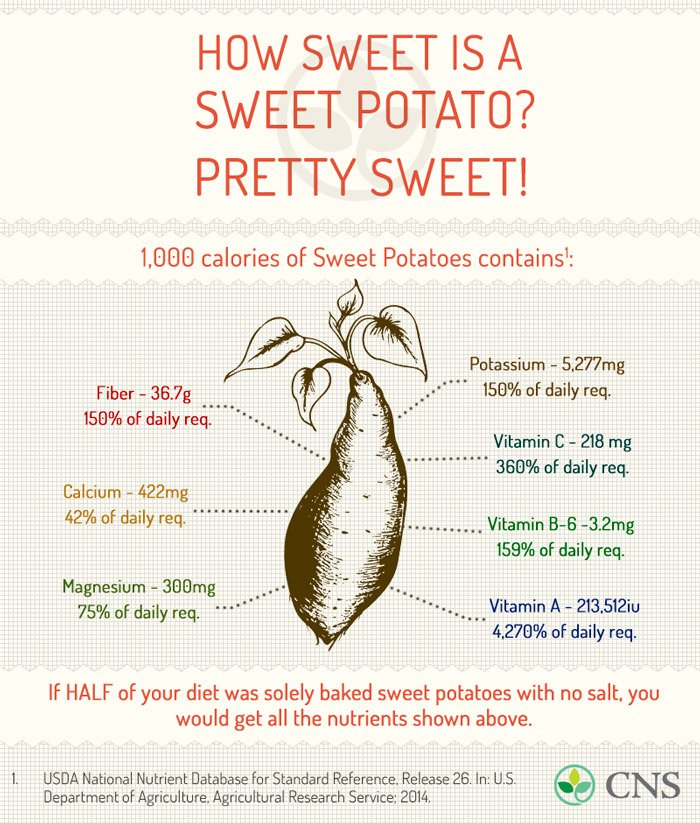 They’re also a great source of vitamin C, contain vitamin D and iron and provide magnesium – a mineral that roughly 80% of the population are deficient in, often unknowingly.
They’re also a great source of vitamin C, contain vitamin D and iron and provide magnesium – a mineral that roughly 80% of the population are deficient in, often unknowingly.
And while they are sweet, their sugars are released slowly into the bloodstream, helping to keep blood glucose levels balanced, providing a good source of energy without spikes and dips.
20. Conventional Beef < Grass-Fed Beef
Skip the hormones and chemicals and opt for a pure, organic option. Full of protein, vitamins and minerals, grass-fed beef is an easy option to add to your families menu.
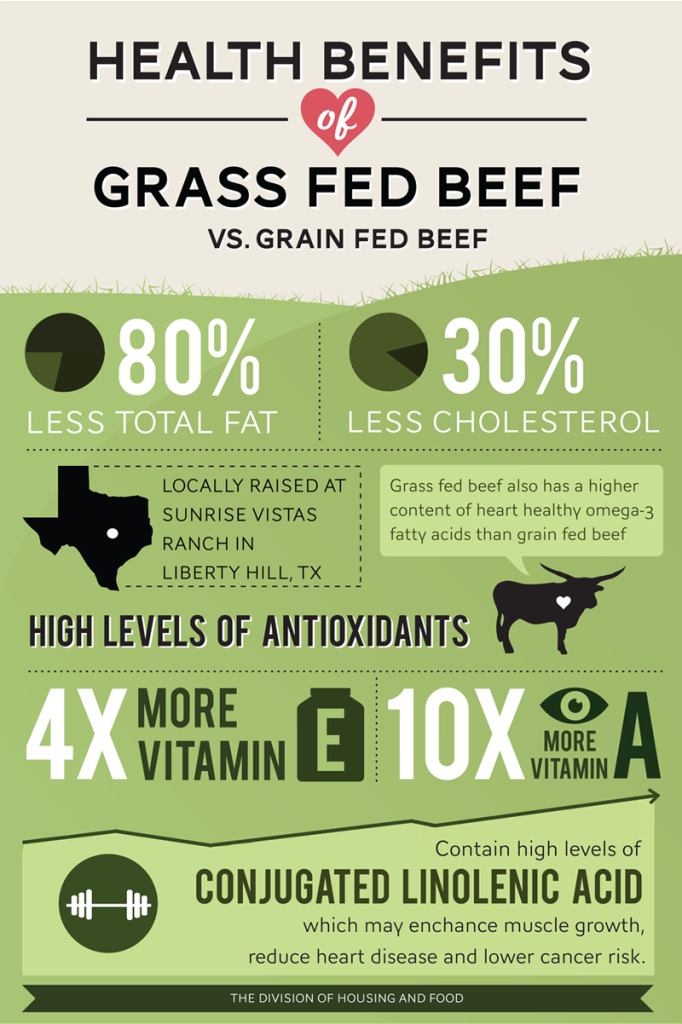
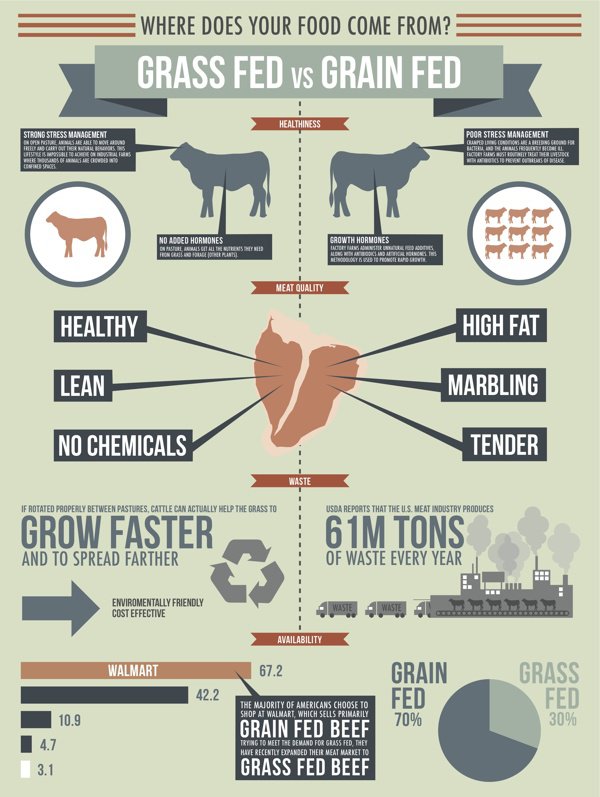
21. White Rice < Cauliflower Rice
This cruciferous veggie has been linked to cancer prevention due to it’s nutrient support to 3 body systems closely related to cancer – detox system; antioxidant system; and inflammatory/anti-inflammatory system. Imbalances in any of these systems can increase the risk for cancer, but this awesome veggie supports them all!
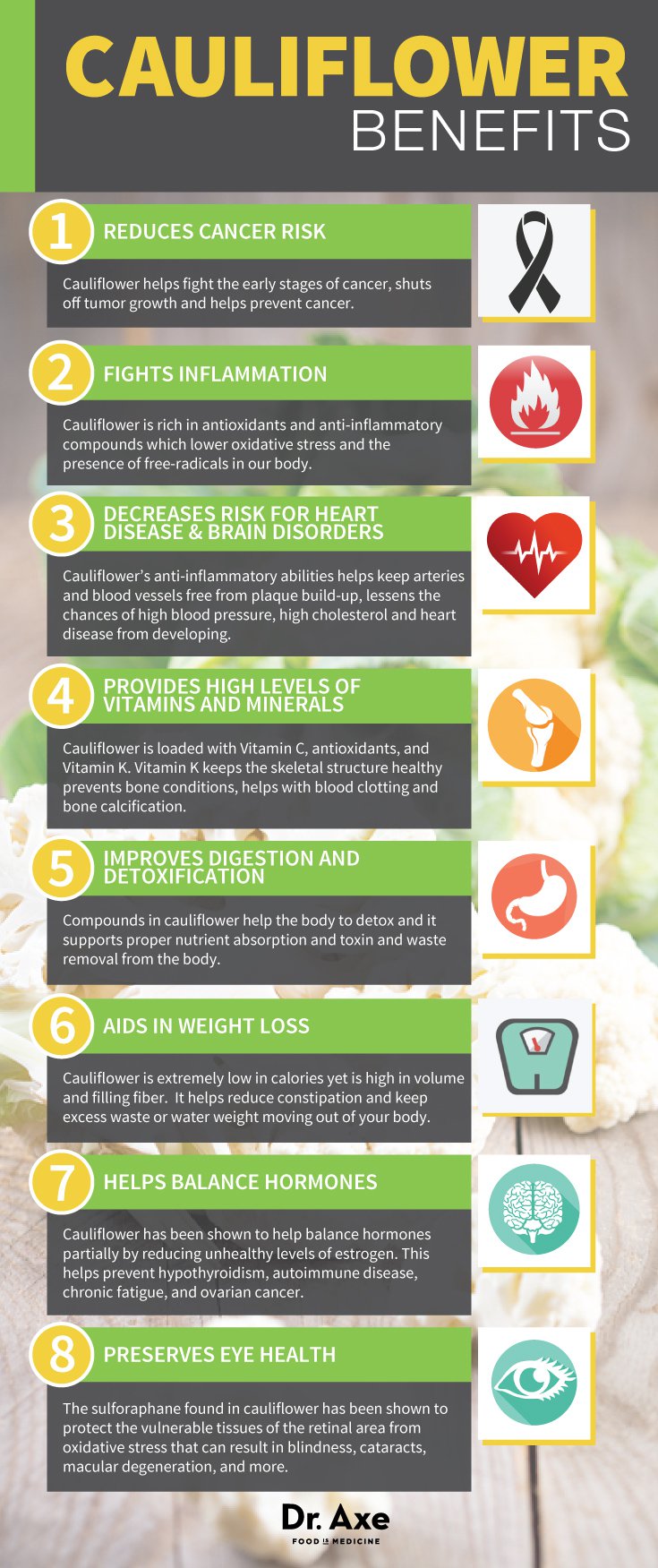 22. Potato Chips < Kale Chips
22. Potato Chips < Kale Chips
Trans fats are at the core of those addicting, salty, potato chips. Ditch them! For a healthy upgrade, grab some kale chips instead, which contain protein, fiber, vitamins A, C and K, folate and omega 3 fatty acids. The best part is, you can season them however you’d like! Use nutritional yeast for a “cheesy” flavor or cayenne for a little punch.
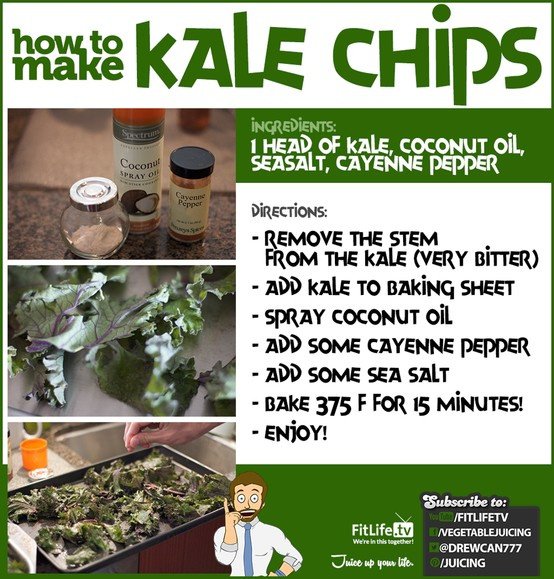 23. Cheese and Crackers < Apple and Nut Butter
23. Cheese and Crackers < Apple and Nut Butter
Why not ditch the typical American snack and try something with more fiber and protein that will keep you full longer, give you the sweet and salty flavor you love and be good to your waistline!
>> click here for how to make your own almond butter
24. Snack Bar < Handful Raw Almonds
Most of the store bought bars are nothing but sugar, gluten, and fillers. Instead, grab a handful of raw almonds, which will tide you over until your next meal while keeping your mind sharp and your blood sugar balanced.
 25. Conventional Dairy < Kefir
25. Conventional Dairy < Kefir
Added hormones, yuck! Conventional dairy is full of it as well sugar. Kefir though is full of beneficial bacteria to support a healthy gut and immune system. It can even help those with lactose intolerance begin to tolerate lactose again!
Try organic goat’s milk kefir with turmeric powder! This drink is anti-inflammatory and so good!
26. Croutons < Toasted Nuts
Packed with heart-healthy fats, protein, vitamins and minerals, toasted nuts are a no brainer atop salads. Some nuts are healthier than others, some of the best options being walnuts (brain health), almonds and Brazil nuts (a great source of selenium).
27. Ice Cream < Frozen Banana
This is one of the easiest swaps! Peel and chop 1 banana (or more) and lay on parchment paper on top of a cookie sheet. Freeze. Once frozen, add to a food processor alone or with cacao powder and blend. Enjoy immediately (doesn’t freeze well).
Plus, bananas are a great source of potassium, which is said to decrease the risk of high blood pressure and heart disease.
They’ve been said to help with depression due to high levels of tryptophan, which is converted to serotonin – the “happy”, “feel good” neurotransmitter in the brain!
Fun fact: 95% of your serotonin is stored in your gut so keeping your gut healthy makes you happier!
They’re great for energy, may help reduce muscle cramps and PMS symptoms. They’re also great if you’ve got diarrhea, as they are soothing to the digestive tract and provide electrolytes to aid in nutrient absorption.
 28. Canola Oil < Coconut Oil
28. Canola Oil < Coconut Oil
Canola oil is made from the rapeseed and is one of the highest GMO crops, making it a terrible choice when it comes to cooking your super healthy food in! Coconut oil is a superfood in its own right, as it packs a powerful punch when it comes to all the nutrients it contains. Containing beneficial MCT’s – medium chain triglycerides – coconut oil is a great choice for cooking with as it can be heated at any temperature without becoming rancid (one of the very few oils that can say that!).
Coconut oil can help you BURN MORE FAT (you read that right!) and increase energy expenditure by as much as 5%.
It’s considered an anti-viral, anti-bacterial and anti-inflammatory and can improve blood cholesterol levels as well as potentially lower the risk for heart disease.
This healthy MCT oil is great for brain health and immunity!
29. Milk Chocolate < Dark Chocolate
Milk chocolate = sugar and dairy. Whereas dark chocolate – over 70% cacao – is actually good for you! Quality, high cacao chocolate contains fiber, iron, magnesium, copper, manganese and other minerals. It’s full of antioxidants, which protect you from free radicals – one of the things that lead to disease. It’s also thought to be good for your brain!
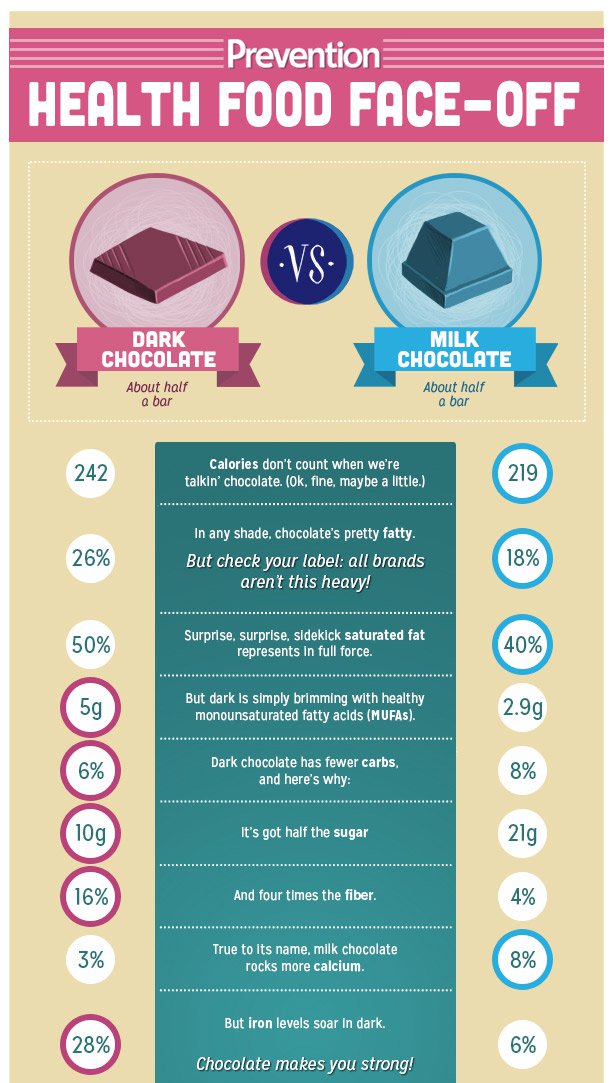 30. Cake or Cookies < Fresh Fruit with Cacao Nibs and Coconut Milk
30. Cake or Cookies < Fresh Fruit with Cacao Nibs and Coconut Milk
Gluten, sugar, dairy – you know by now if you’ve been watching and/or reading my info for a while now that these 3 components are no-no’s in my book. They lead to inflammation, disease, gut troubles, decrease immunity, increase brain fog and for many, cause skin issues and so much more
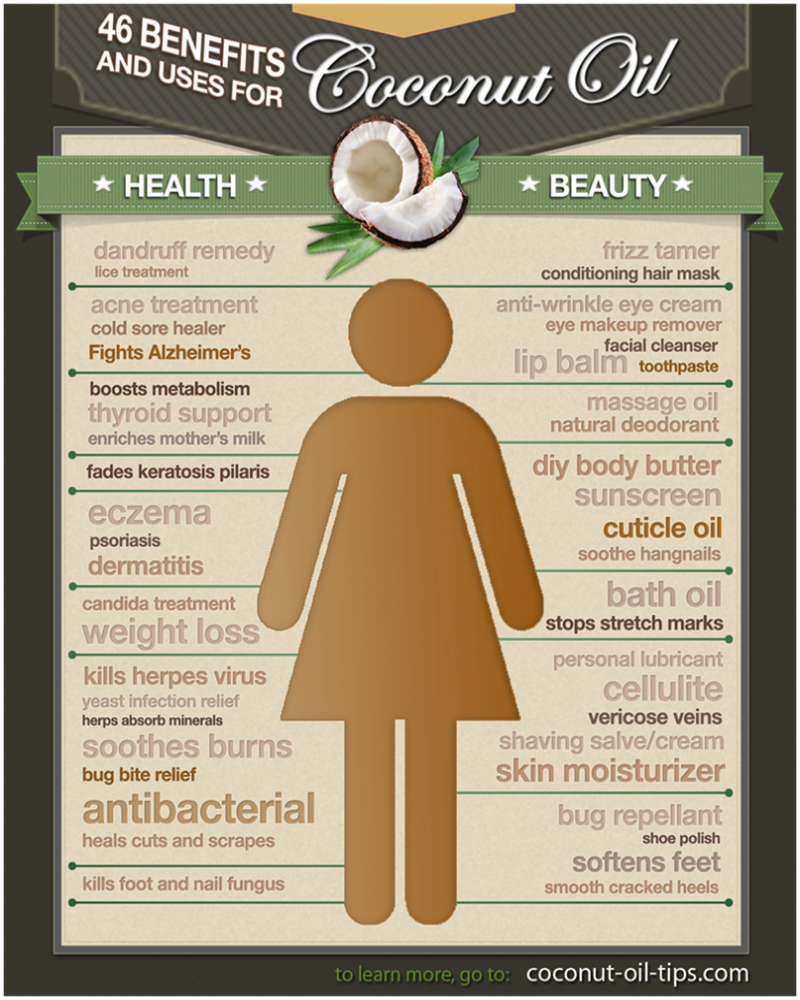
Grab some antioxidant rich berries, a handful of cacao nibs and a splash of unsweetened coconut milk and you’ve got yourself a sweet treat, without the guilt!
As you can see, there are a lot of upgrade options to your common foodie favorites. And these are only the tip of the iceberg, my friend. Commit to your health and swap some of your not-so-healthy habits for 1 – or more! – of these. You don’t have to incorporate them all. Try 1 and add more in as you’re ready. Consistency is key in cultivating healthier habits and over time, it will come naturally!
*Article originally appeared at Healthy Holistic Living.



